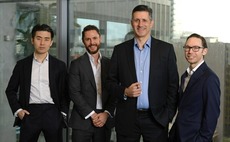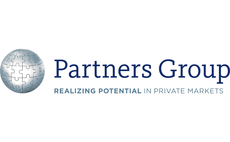
Liang Meng, DE Shaw & Co.
The Managing Director and CEO of the group’s Greater China business talks about the firm’s approach to private equity investing, stemming from its alternative investment pedigree.
Q: How is DE Shaw positioned in the market right now?
A: In the last three and a half years, we’ve put around $1 billion to work in China private equity. The interesting thing is that people view us as a large hedge fund. They don’t realize how big our private equity business is, particularly in Asia. As a leader in the alternative investment space, there is a lot of capital markets knowledge that we can leverage in sourcing, executing and exiting the investment opportunities. Also, a large part of our team, including myself, has M&A and capital markets background, which allowed us to adopt a “merchant banking” approach in private equity investing.
People then try to put us into the same category as the principal investments division at major investment banks, or hedge funds’ private groups. We’re actually quite different from them. A lot of them have been taking broker-led deals, consortium deals, with a check size of $30-50 million. We try to differentiate.
Using this approach, we never participate in any auction, or passive syndicated deal. In a lot of cases, we are the company’s advisor, although we don’t take an advisory fee. We take an option to invest. We do it reasonably quietly and we find a situation early. We did very well in the past three years, having almost completed an investment cycle and made great realizations despite the financial crisis. So we’re pretty happy about that.
This year we made a couple of high-profile PIPE investments. There’s so much PE money, local and offshore, that private companies’ expectations are exceedingly high: sometimes even more expensive than the public companies. In the first half of 2009, we were looking at probably half a dozen PIPE deals. But the market recovered way too quickly. In 2010, things became uncertain again, starting in the first half. So we started looking at them again.
Q: How do you think DE Shaw’s style and approach works in the Greater China situation?
A: People come in here doing traditional PE, [and] they think they can add value to companies with corporate governance or management expertise. But if you look at the traditional PE shops, [people] do not have much relevant local management or operational experience. There’s a limit to how much you can do, particularly with companies that are entrepreneur-owned and managed.
I think that on the capital markets side and in financial matters, you can help the company a lot. We’ve demonstrated that in our portfolio management, and it made a very big difference. How you add value is very different from how traditional private equity is understood in the West.
Another difference is equity dilution. In China in particular, most of the attractive targets are privately held. I worked with a lot of these companies when I was co-heading i-banking at JPMorgan. If this is a successful business, the chances are that the chairman has a very strong personality. A lot of people underprice or misunderstand the downside potential. In every deal we do, we focus on downside protection. We will sacrifice a little bit of upside equity for downside protection. I don’t need to get the cheapest valuation if I can have downside protection. And that is very important, particularly as proven during the GFC. [Downside risk] is frequently mispriced.
The third is the capital base. You don’t really need to do pure equity. Give them credit, sell high-yield, buy greenshoe options... You have a few structuring elements that can enhance your returns and offer some protection. Very few people can do that – or know how to do it.
Q: Does DE Shaw have more flexible fund terms than mainstream PE firms?
A: We do. As an alternative investment firm, we are one of the largest – about $21 billion. While our LPs are getting more anxious about liquidity after the GFC (and yes, we’re more constrained than before), we still have more flexibility than the traditional PE firms to look at what we believe are attractive, yet overlooked, sets of opportunities.
Further reading
Latest News
Asian GPs slow implementation of ESG policies - survey
Asia-based private equity firms are assigning more dedicated resources to environment, social, and governance (ESG) programmes, but policy changes have slowed in the past 12 months, in part due to concerns raised internally and by LPs, according to a...
Singapore fintech start-up LXA gets $10m seed round
New Enterprise Associates (NEA) has led a USD 10m seed round for Singapore’s LXA, a financial technology start-up launched by a former Asia senior executive at The Blackstone Group.
India's InCred announces $60m round, claims unicorn status
Indian non-bank lender InCred Financial Services said it has received INR 5bn (USD 60m) at a valuation of at least USD 1bn from unnamed investors including “a global private equity fund.”
Insight leads $50m round for Australia's Roller
Insight Partners has led a USD 50m round for Australia’s Roller, a venue management software provider specializing in family fun parks.








